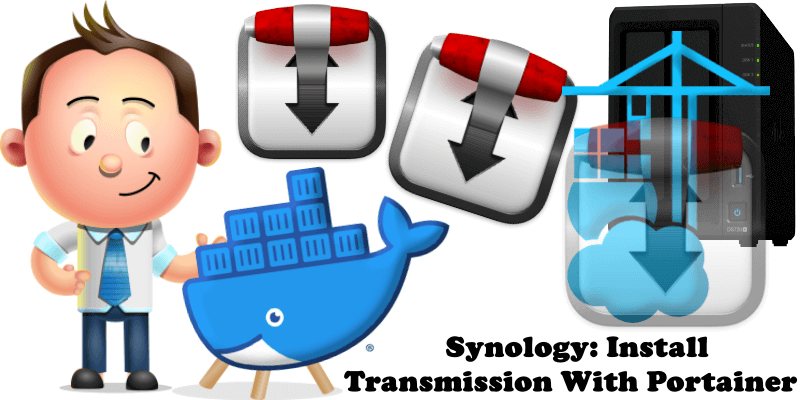
My previous guide for Transmission involved the use of Task Scheduler. Today I’m offering a recommended and excellent alternative for installing the latest Transmission version via Portainer. Transmission is designed for easy, powerful use. Transmission has the features you want from a BitTorrent client: encryption, a web interface, peer exchange, magnet links, DHT, µTP, UPnP and NAT-PMP port forwarding, webseed support, watch directories, tracker editing, global and per-torrent speed limits, and more. In this step by step guide I will show you how to install Transmission on your Synology NAS using Docker & Portainer.
This guide works perfectly with the latest Transmission 4.1.1 release.
STEP 1
Please Support My work by Making a Donation.
STEP 2
Install Portainer using my step by step guide. If you already have Portainer installed on your Synology NAS, skip this STEP. Attention: Make sure you have installed the latest Portainer version.
STEP 3
Go to File Station and open the docker folder. Inside the docker folder, create one new folders and name it transmission. Follow the instructions in the image below.
Note: Be careful to enter only lowercase, not uppercase letters.
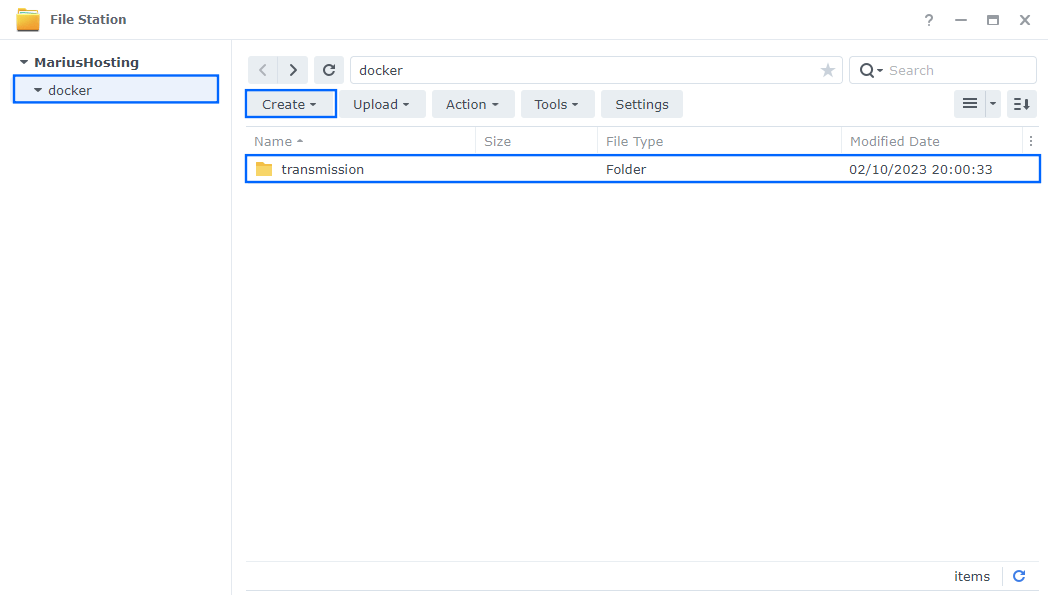
STEP 4
Now create three new folders inside the transmission folder that you created at STEP 3 and name them data, downloads, watch. Follow the instructions in the image below.
Note: Be careful to enter only lowercase, not uppercase letters.
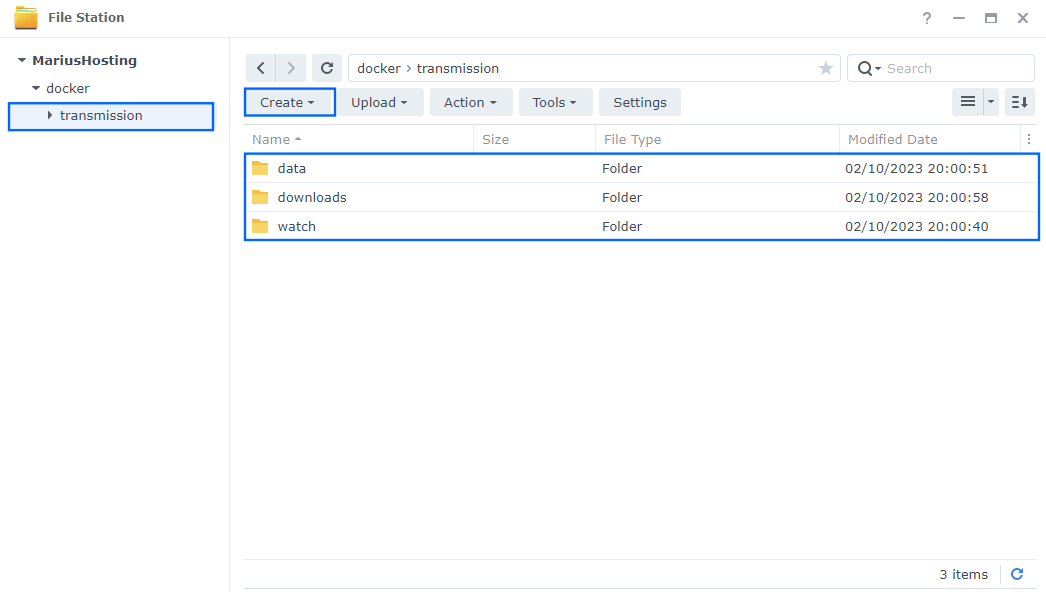
STEP 5
Log into Portainer using your username and password. On the left sidebar in Portainer, click on Home then Live connect. Follow the instructions in the image below.

On the left sidebar in Portainer, click on Stacks then + Add stack. Follow the instructions in the image below.

STEP 6
In the Name field type in transmission. Follow the instructions in the image below.
services:
transmission:
container_name: Transmission
image: ghcr.io/linuxserver/transmission
mem_limit: 4g
cpu_shares: 768
security_opt:
- no-new-privileges:true
ports:
- 9091:9091
- 51413:51413/udp
- 51413:51413
volumes:
- /volume1/docker/transmission/data:/config:rw
- /volume1/docker/transmission/downloads:/downloads:rw
- /volume1/docker/transmission/watch:/watch:rw
environment:
USER: marius
PASS: mariushosting
TZ: Europe/Bucharest
PUID: 1026
PGID: 100
restart: on-failure:5
Note: Before you paste the code above in the Web editor area below, change the value for USER. Type in your own username. marius is an example for a username.
Note: Before you paste the code above in the Web editor area below, change the value for PASS. Type in your own password. mariushosting is an example for a password.
Note: Before you paste the code above in the Web editor area below, change the value for TZ. (Select your current Time Zone from this list.)
Note: Before you paste the code above in the Web editor area below, change the value numbers for PUID and PGID with your own values. (Follow my step by step guide on how to do this.)
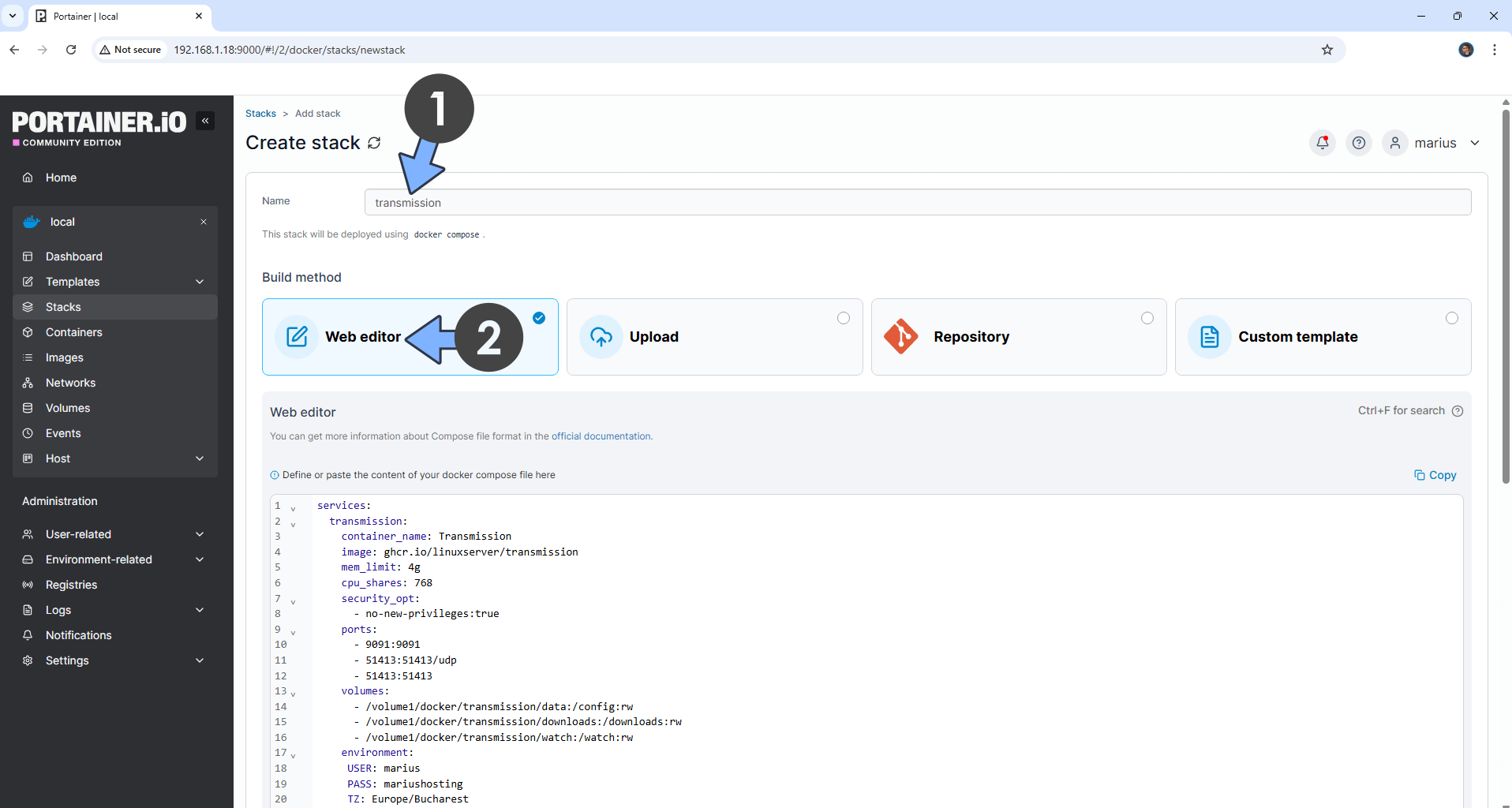
STEP 7
Scroll down on the page until you see a button named Deploy the stack. Click on it. Follow the instructions in the image below. The installation process can take up to a few minutes. It will depend on your Internet speed connection.
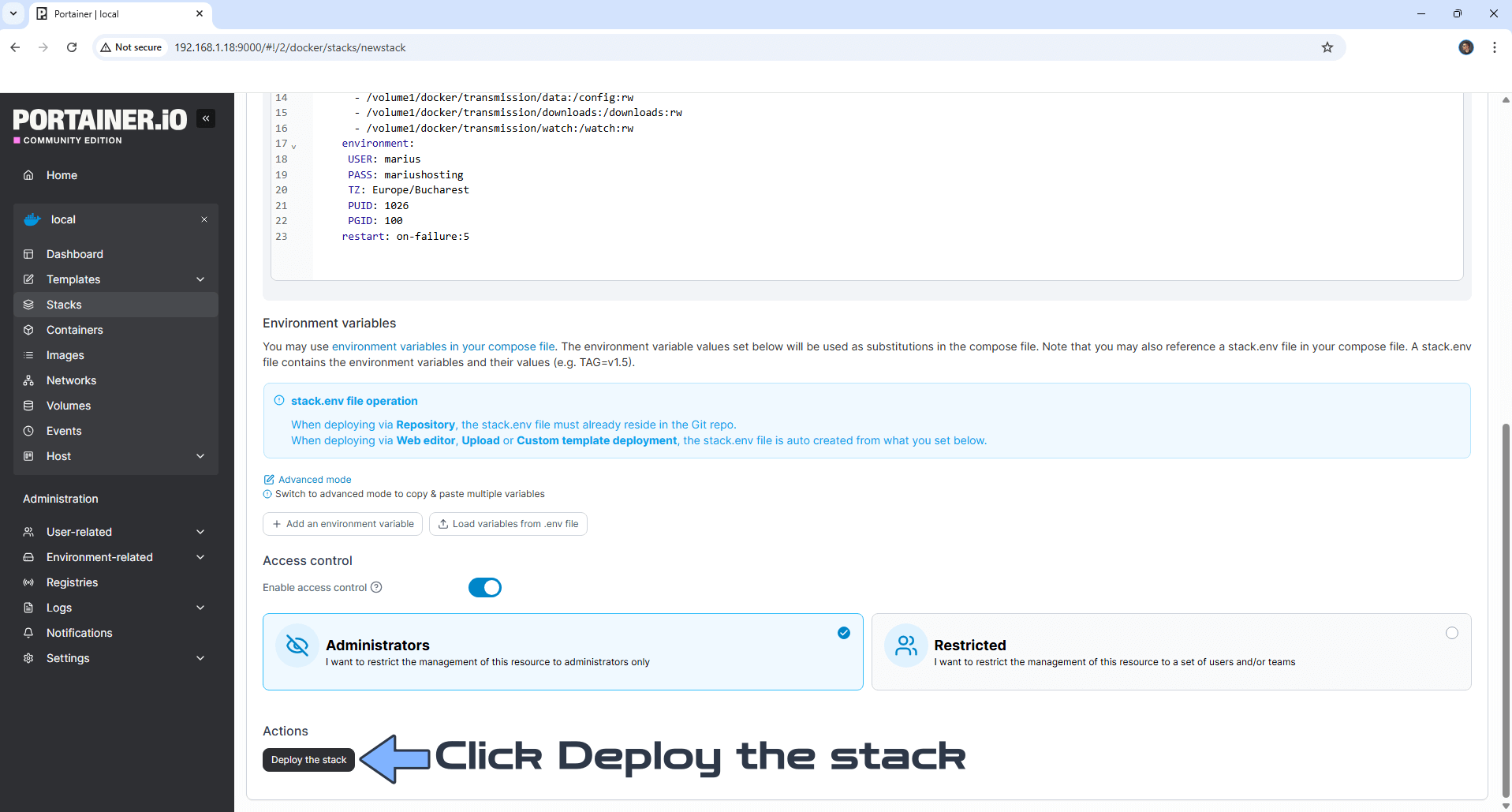
STEP 8
If everything goes right, you will see the following message at the top right of your screen: “Success Stack successfully deployed“.

STEP 9
🟢Please Support My work by Making a Donation. Almost 99,9% of the people that install something using my guides forget to support my work, or just ignore STEP 1. I’ve been very honest about this aspect of my work since the beginning: I don’t run any ADS, I don’t require subscriptions, paid or otherwise, I don’t collect IPs, emails, and I don’t have any referral links from Amazon or other merchants. I also don’t have any POP-UPs or COOKIES. I have repeatedly been told over the years how much I have contributed to the community. It’s something I love doing and have been honest about my passion since the beginning. But I also Need The Community to Support me Back to be able to continue doing this work.
STEP 10
The installation process can take up to a few seconds/minutes. It will depend on your Internet speed connection. Now open your browser and type in http://Synology-ip-address:9091 You will be prompted to add the Username (USER) and Password (PASS) that you have previously added at STEP 6. Click Sign in. Follow the instructions in the image below.
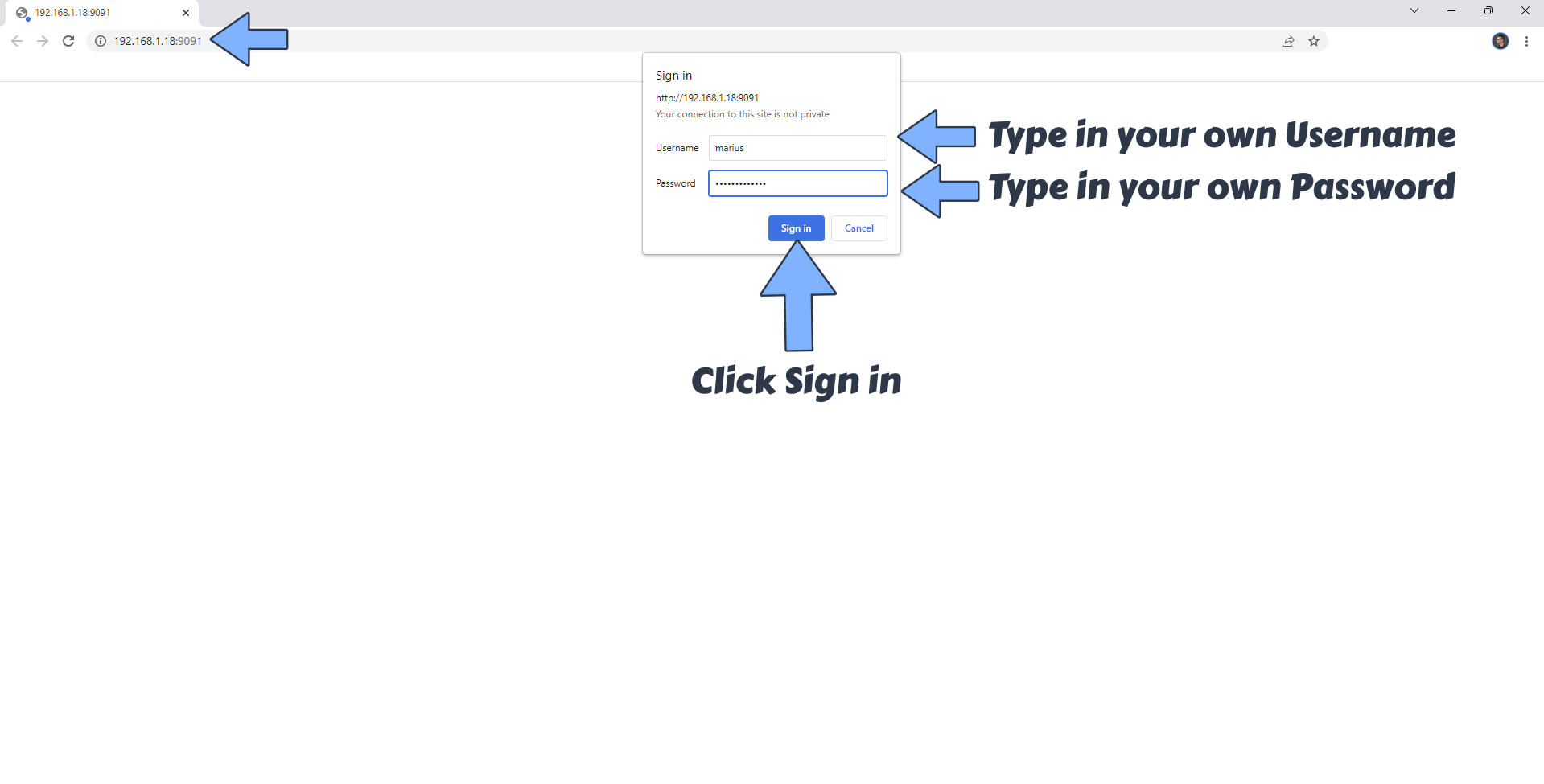
STEP 11
At the top right of the page, click on the 3 horizontal lines, then Edit preferences. Follow the instructions in the image below.
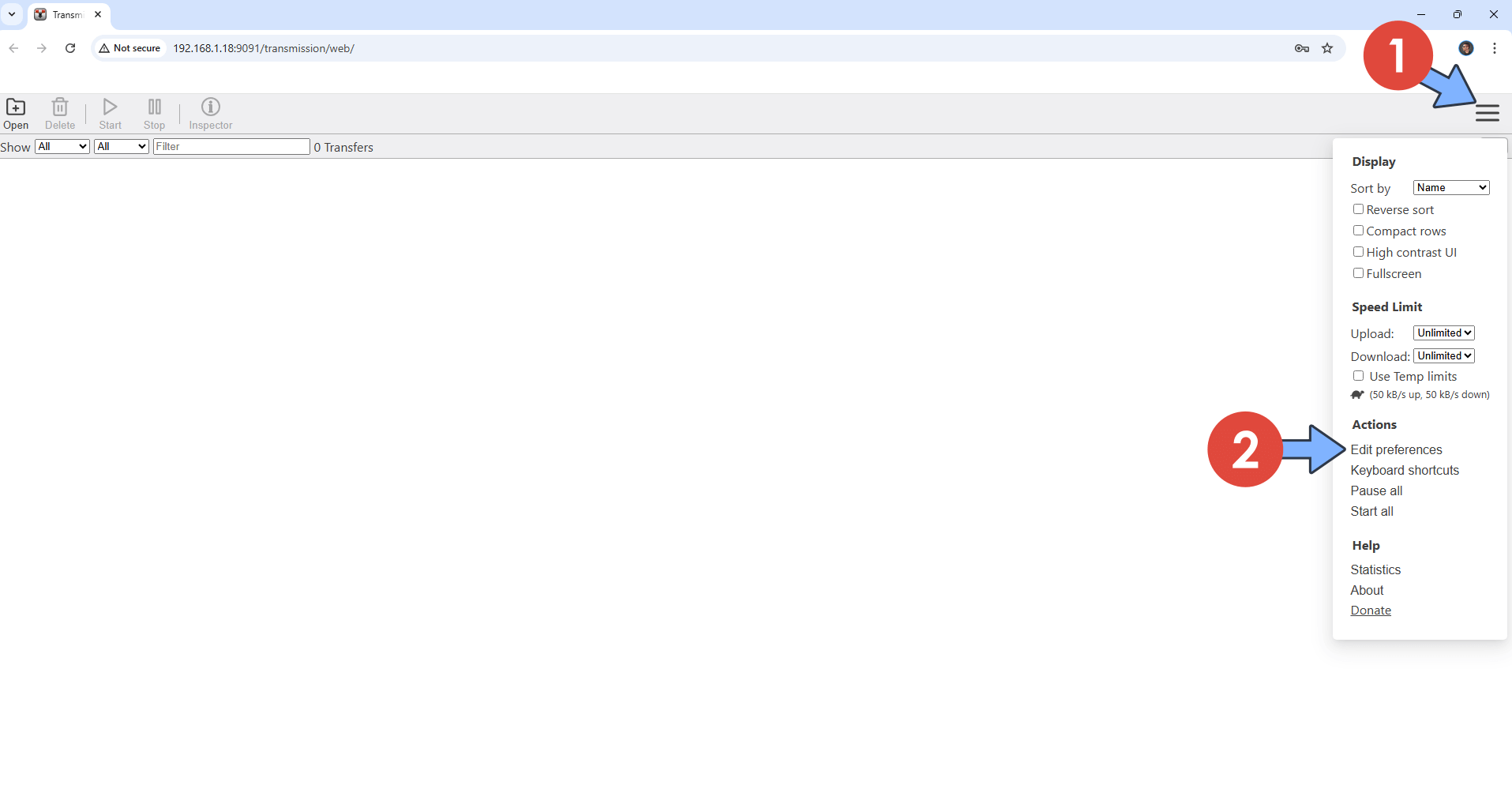
STEP 12
Port forward port 51413 in your router pointing to your Synology NAS local IP. Follow the instructions in the image below.
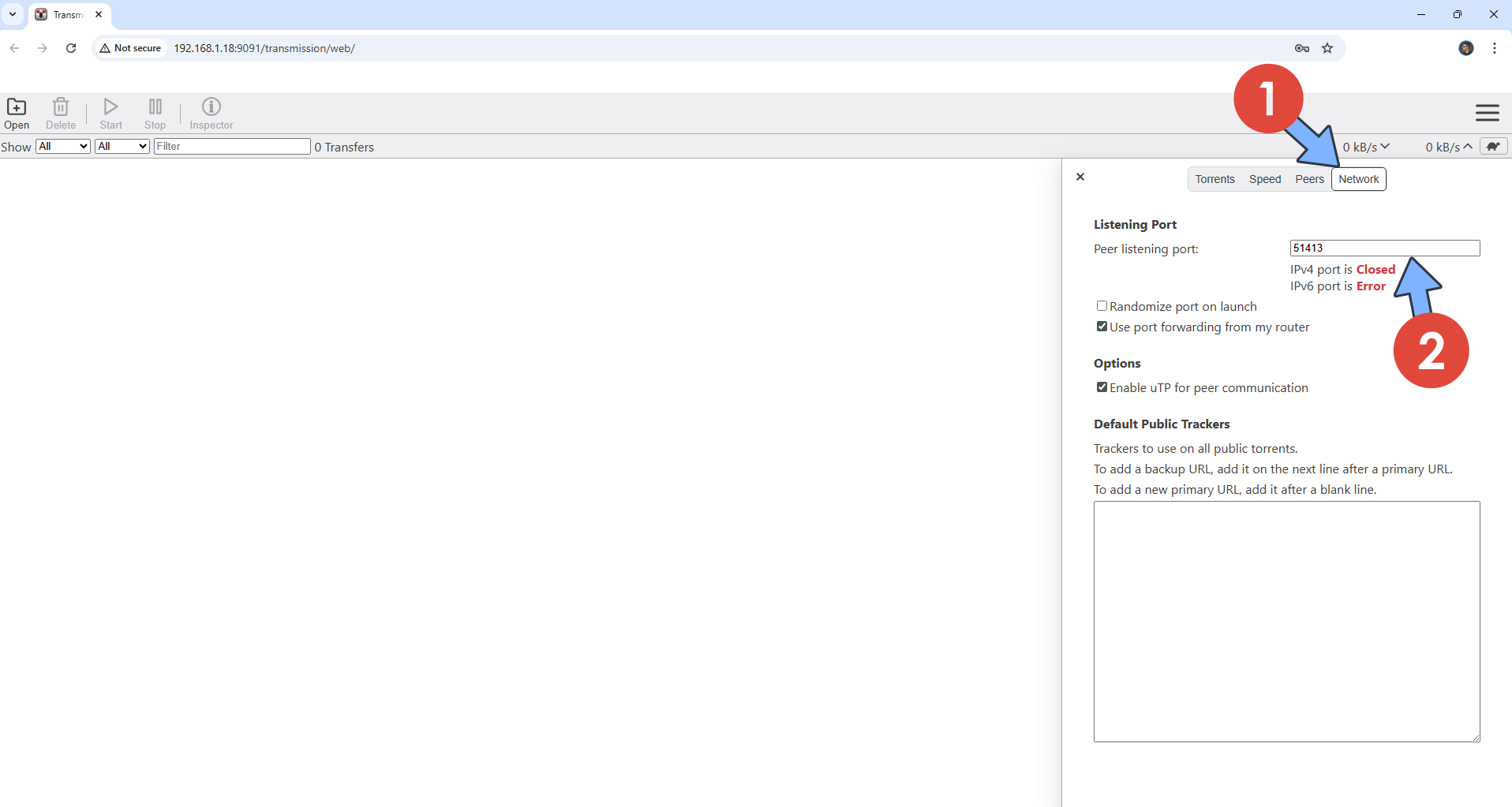
Enjoy Transmission!
If you encounter issues by using this container, make sure to check out the Common Docker issues article.
Note: If you want to run the Transmission container over HTTPS, check How to Run Docker Containers Over HTTPS. In order to make Transmission work via HTTPS, it’s mandatory to activate WebSocket.
Note: Can I run Docker on my Synology NAS? See the supported models.
Note: How to Back Up Docker Containers on your Synology NAS.
Note: Find out how to update the Shaarli container with the latest image.
Note: How to Free Disk Space on Your NAS if You Run Docker.
Note: How to Schedule Start & Stop For Docker Containers.
Note: How to Activate Email Notifications.
Note: How to Add Access Control Profile on Your NAS.
Note: How to Change Docker Containers Restart Policy.
Note: How to Use Docker Containers With VPN.
Note: Convert Docker Run Into Docker Compose.
Note: How to Clean Docker.
Note: How to Clean Docker Automatically.
Note: Best Practices When Using Docker and DDNS.
Note: Some Docker Containers Need WebSocket.
Note: Find out the Best NAS Models For Docker.
Note: Activate Gmail SMTP For Docker Containers.
This post was updated on Saturday / February 21st, 2026 at 5:58 PM
